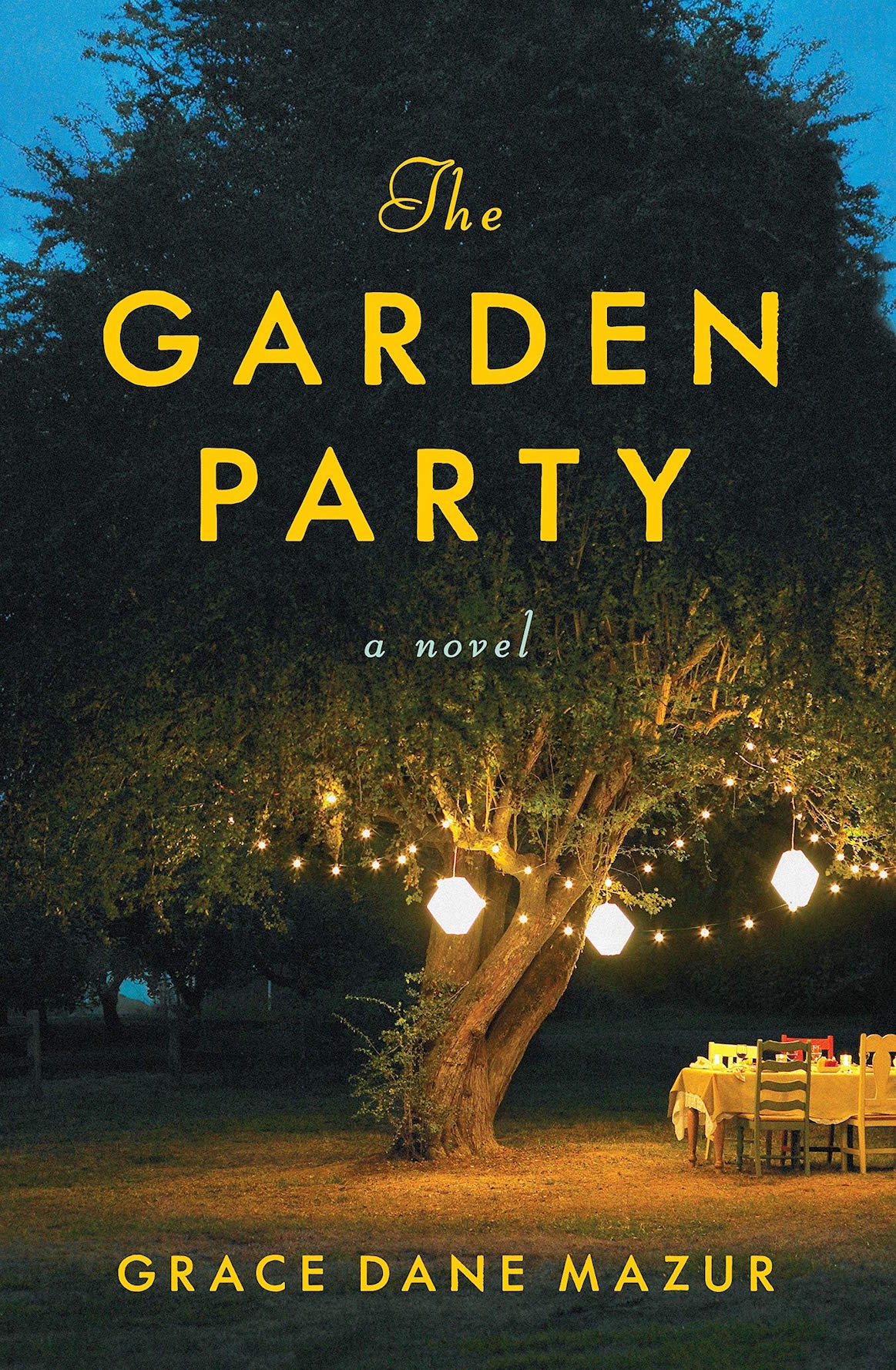The Garden Party
by Grace Dane Mazur
reviewed by Hannah Rosefield
In Grace Dane Mazur’s tightly organized, emotionally expansive new novel, the relationship that takes center stage is one for which the English language offers no word: the relationship between individuals or couples whose children are married to one another. The Garden Party takes place on a single evening in a house in Brookline, Massachusetts, and in its twisting, overgrown, magical garden. Tomorrow, Adam Cohen will marry Eliza Barlow. Tonight, his parents are hosting a dinner for the two families.
As the guests arrive, Pindar Cohen, Adam’s father, muses on the namelessness of his imminent connection to Eliza’s parents. The tenor of his musings is hardly promising: “He would not call them his mirror in-laws, for that implied a reflection that he did not feel. [ … ] He wanted a word that stressed the distance, their mutual unrelatedness. [ … ] Negative in-laws. Out-laws.” And indeed, aside from their privilege, the Cohens and the Barlows have almost nothing in common. The Cohens are academics and artists: Pindar is an authority on ancient Babylon, his wife Celia a professor of literature. Adam is a poet, and one of his sisters, Sara, is a scientist-turned-writer (previously a biologist who studied scorpions, she is now writing a book on scorpion folklore). In contrast, the Barlow parents are impeccably WASPy and suspicious of anyone and anything that isn’t; they, and three of their five children, are lawyers. The stage is set for an evening of comical misunderstanding, snide whispers, and unexpected connection.
Mazur’s career, like Sara Cohen’s, has taken her from science to literature: her books (The Garden Party is her fourth) followed a Ph.D. in biology and postdoctoral research on silkworms. (Full disclosure: Mazur is also a former fiction editor at the Harvard Review, though we’ve never met.) Her biography aligns her with the Cohens rather than the Barlows, and the sympathies of her novel are decidedly with the former family. The book opens not with the family trees common at the start of novels about multigenerational families, but with the seating plan, made by Celia, that mixes Barlows and Cohens together. Beneath each name are a few words that Celia has written to jog her memory: “STEPHEN BARLOW, 64: Soon-to-be judge? Lord of golf,” “(Rev?) HARRY BARLOW, 28: Eliza’s twin. What sect is he?” “LEAH COHEN, 91: No elderly dinner partner for her!” It’s through the eyes of a Cohen, then, that we meet the novel’s cast—but although the narrative spends more time with the various members of the Cohen family, Mazur skillfully moves between members of both families, using free indirect discourse to uncover the private dissatisfactions and desires each character brings to the dinner table.
The novel has a great deal of fun with the differences between the two families, and if Mazur’s portrayal of the Barlows’ extreme conventionality sometimes seems implausible (would Mr. Barlow really think that his future son-in-law’s poetic vocation must mean he has “some sort of disability”?), there are many more moments that are gloriously believable—as, for example, when Celia and Mrs. Barlow compare, to their mutual incomprehension, the names of their pets. The Cohens’ dog, Adannu, is named for a word that means “a moment in time” in an ancient Mesopotamian language, while the Barlow border collies take their names from brands of single-malt scotch.
There’s an A Midsummer Night’s Dream-like quality to the novel, as characters wander away from the table and into the garden, with its “canopy of oak and maple and pine,” its hollyhocks, its “joyous bats” and ancient pond. Even the less palatable elements of a garden become beautiful: “filigrees of blackflies and mosquitoes dance in the heat waves.” In this enchanted space, unlikely alliances form and new possibilities take shape. Mazur cleverly sets the novel in 1991, so that the world beyond the garden recedes utterly: no one sneaks away to text a friend or posts a photo on Instagram, no one checks a fact on Google or receives a news notification. Instead, the Barlows and the Cohens focus on each other, on their environment, and on their own memories and predicaments. Little Eli Barlow, aged three and an elective mute, is surprised into speech by a fish from the garden pond; old Leah Cohen, Pindar’s mother, flirts with Mrs. Barlow’s not-entirely-there father, encourages the love affairs of her grandchildren, and remembers her own love affairs in Europe between the wars. Pindar Cohen and his negative in-laws will never be kindred spirits, but similarities emerge among the differences: the Barlows too love their work, worry about their children, and realize that they can control neither their own desires nor the desires of those around them. On this one night, a moment in time—adannu—stretches to encompass the past and the future, all the things a person might love and share and withhold throughout a lifetime.
Published on April 25, 2019

